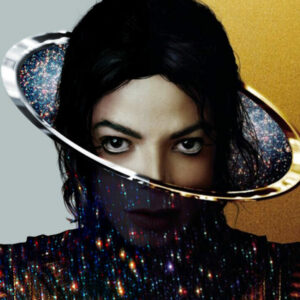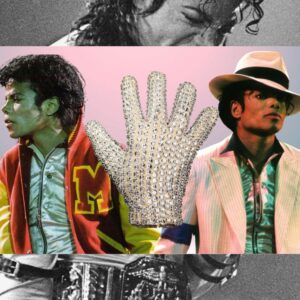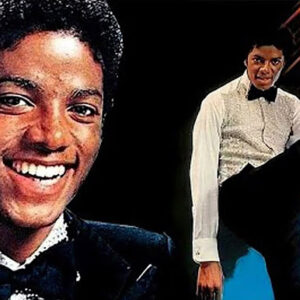In the realm of entertainment, where image and influence often intertwine, Queen Latifah stands as an undeniable icon. From her early days as a pioneering female rapper to her seamless transition into acting, she has consistently carved out spaces where power and confidence resonate on-screen. Whether through her commanding presence in musical numbers or her gripping performances in action-packed scenes, Latifah has built a career defined by fierce independence, strength, and unwavering determination. Her ability to embody these qualities has not only solidified her status in Hollywood but has also influenced how women, particularly Black women, are perceived in film.
Early Career and Breakthrough Roles
Music Roots to Film
Before Queen Latifah graced the silver screen, she was already a formidable force in the music industry. As one of the first prominent female rappers, Latifah’s music career was rooted in empowerment and resilience, themes that would later echo in her acting roles. Songs like “Ladies First” and “U.N.I.T.Y.” showcased her ability to address issues of sexism, racism, and inequality, all while exuding a confident, unapologetic persona. This musical foundation laid the groundwork for her transition to film, where she would continue to embody powerful, self-assured characters.
Her transition from rap to acting wasn’t just a shift in mediums; it was a continuation of her message. Latifah’s early music was all about standing tall in the face of adversity, a message she carried with her into her acting career. When she made her film debut, she didn’t leave behind the confidence and strength that defined her music; instead, she brought it to the forefront of her performances. This seamless transition set the stage for a career where Queen Latifah would be synonymous with on-screen bravery.
Breakthrough Role: Set It Off (1996)
Latifah’s breakthrough role in Set It Off (1996) as Cleo Sims was a powerful demonstration of her ability to portray strength and vulnerability simultaneously. In this film, she played a bold and rebellious character—a lesbian bank robber grappling with a life of crime and hardship. Cleo was tough, but Latifah infused the character with layers of complexity, making her more than just a stereotypical “tough girl.”
Set It Off allowed Latifah to showcase her range as an actress. Cleo wasn’t just a character with bravado; she was also deeply loyal, loving, and ultimately tragic. The role required Latifah to balance Cleo’s rough exterior with the emotional turmoil beneath, a challenge she met with finesse. This performance was a pivotal moment in Latifah’s acting career, proving she could handle complex, multifaceted roles that demanded more than just physical presence—it required emotional depth.
Latifah’s portrayal of Cleo also marked a significant moment in film, especially for the representation of Black women in Hollywood. Cleo was a character who defied traditional gender roles, and her unapologetic masculinity challenged the stereotypes of how women, particularly Black women, should be portrayed on screen. Latifah’s fearless portrayal of Cleo in Set It Off left an indelible mark on the industry, cementing her reputation as an actress who could bring both power and vulnerability to her roles.
Portraying Strong Female Characters
Chicago (2002)
One of Queen Latifah’s most iconic roles came in the 2002 musical film Chicago, where she played Matron Mama Morton, the tough, no-nonsense prison warden. In this role, Latifah portrayed a commanding and resourceful woman who knew how to navigate the male-dominated world of the prison system. Mama Morton was a character who exuded power, both physically and emotionally. She wasn’t just in charge—she was in control.
Latifah’s portrayal of Mama Morton was a masterclass in how to play a strong female character without falling into the trap of one-dimensionality. Mama Morton was tough, yes, but she was also smart, witty, and deeply pragmatic. She knew how to manipulate the system to her advantage, and she did so with a sense of humor and style that made her character unforgettable. Latifah’s performance in Chicago earned her an Academy Award nomination for Best Supporting Actress, further solidifying her place in Hollywood as a force to be reckoned with.
Beyond the accolades, Queen Latifah’s role in Chicago also highlighted her ability to bring nuance to roles that could easily become caricatures. Mama Morton wasn’t just a “tough woman” in a man’s world; she was a savvy, strategic player who used her power to protect herself and those under her care. Latifah’s performance in Chicago showcased her ability to portray strength in a way that was both empowering and entertaining, making her one of the standout performers in the film.
Beauty Shop (2005)
In Beauty Shop (2005), Queen Latifah played Gina, a single mother who starts her own beauty salon after leaving a high-end salon where she felt undervalued. This role allowed Latifah to portray resilience, independence, and leadership—qualities that have become hallmarks of her on-screen persona. Gina was a character who refused to let adversity hold her back, and Latifah brought a sense of determination and warmth to the role that made her both relatable and inspiring.
Beauty Shop was more than just a comedy; it was a film about empowerment, particularly for women of color. Latifah’s character Gina was a businesswoman, a mother, and a mentor, all roles that required strength and compassion. Latifah portrayed Gina as a woman who wasn’t afraid to take risks, stand up for herself, and build something from the ground up. This role reinforced Latifah’s image as an actress who could embody strong, independent women with ease.
Latifah’s performance in Beauty Shop also highlighted her ability to bring depth to roles that, in other hands, might have been played for laughs alone. Gina was funny, yes, but she was also a woman with dreams and ambitions, someone who had to fight for her place in the world. Latifah’s portrayal of Gina was a celebration of female resilience and entrepreneurship, themes that resonate with audiences to this day.
Hairspray (2007)
In Hairspray (2007), Queen Latifah took on the role of Motormouth Maybelle, a civil rights activist and mother figure who stands up for her community with grace and power. This role was particularly significant because it allowed Latifah to portray not just strength, but also dignity and compassion. Motormouth Maybelle was a character who used her voice and her platform to fight for justice, and Latifah brought a sense of warmth and wisdom to the role that made her a standout in the film.
Hairspray was a film about challenging the status quo, and Latifah’s character was at the heart of that challenge. Motormouth Maybelle was a woman who refused to be silenced, and Latifah’s portrayal of her was a powerful reminder of the importance of standing up for what is right. Latifah infused the character with a sense of pride and purpose, making Motormouth Maybelle one of the most memorable characters in the film.
Latifah’s performance in Hairspray also demonstrated her ability to bring strength to roles that required more than just physical presence. Motormouth Maybelle was a character who led with her heart, and Latifah’s portrayal of her was a celebration of the power of love, community, and activism. In a film filled with big personalities and larger-than-life performances, Latifah’s quiet strength made her character truly shine.
Versatility in Strength
The Equalizer (2021)
In The Equalizer (2021), Queen Latifah took on the role of Robyn McCall, a fierce, justice-seeking character who uses her skills to help those in need. This role was a departure from some of her previous characters, as it allowed Latifah to showcase her versatility in action roles. Robyn McCall was a woman who wasn’t afraid to get her hands dirty in the pursuit of justice, and Latifah brought a sense of determination and grit to the role that made her a compelling action hero.
The Equalizer was a showcase of Latifah’s ability to portray strength in different forms. Robyn McCall was a character who was physically strong, but she was also emotionally resilient. Latifah’s portrayal of Robyn was a reminder that strength isn’t just about physical power—it’s also about perseverance, intelligence, and compassion. Latifah’s performance in The Equalizer proved that she could take on action roles with the same confidence and skill that she brought to her earlier performances, further expanding her range as an actress.
Just Wright (2010)
In Just Wright (2010), Queen Latifah played Leslie Wright, a physical therapist who falls in love with a professional basketball player while helping him recover from an injury. This role was a departure from some of Latifah’s more action-packed roles, but it still allowed her to showcase a different kind of strength. Leslie Wright was a character who balanced strength with compassion, and Latifah brought a sense of warmth and vulnerability to the role that made her performance both relatable and endearing.
Just Wright was a romantic comedy, but Latifah’s portrayal of Leslie Wright was more than just a typical rom-com heroine. Leslie was a woman who knew her worth, and Latifah brought a sense of quiet confidence to the role that made her character stand out. Latifah’s performance in Just Wright was a celebration of self-love and empowerment, themes that resonated with audiences and further solidified her reputation as an actress who could portray strong, independent women in a variety of genres.
Representation and Impact on Pop Culture
Changing Perceptions
Queen Latifah’s roles have had a profound impact on how women, especially Black women, are portrayed in Hollywood. Throughout her career, she has consistently challenged stereotypes and redefined what it means to be a strong woman on screen. Whether she’s playing a tough prison warden, a resilient businesswoman, or a justice-seeking vigilante, Latifah brings a sense of power and confidence to her roles that have helped change the way audiences perceive female characters in film.
Latifah’s impact goes beyond just her performances; she has also become a role model for women of all ages. Her characters represent strength, independence, and resilience, qualities that resonate with viewers and inspire them to embrace their own power. Latifah’s roles have helped redefine the narrative around what it means to be a strong woman in Hollywood, and her influence can be seen in the increasing number of powerful, complex female characters on screen today.
Role Model
Queen Latifah’s on-screen bravery has made her a role model for women everywhere. Her characters are more than just fictional representations—they are symbols of empowerment and resilience. Latifah’s portrayal of strong female characters has inspired audiences to embrace their own strength and to challenge the limitations placed on them by society. Whether through her roles in films like Chicago and Beauty Shop or her performances in action-packed series like The Equalizer, Latifah has consistently shown that strength comes in many forms, and that women can be powerful in a variety of ways.
Conclusion: Legacy of Strength and Bravery
Queen Latifah’s impact on the film industry goes beyond her individual performances. She has helped redefine what it means to be a strong woman on screen, particularly for Black women, and her fierce image continues to influence her career and empower viewers. From her early days as a rapper to her iconic roles in films and television, Latifah has consistently portrayed power and confidence with grace and nuance.
As Hollywood continues to evolve, Queen Latifah remains a trailblazer, a woman who has used her platform to challenge stereotypes and inspire others. Her legacy is one of strength, resilience, and empowerment, and her influence on the portrayal of women in film will be felt for generations to come.





